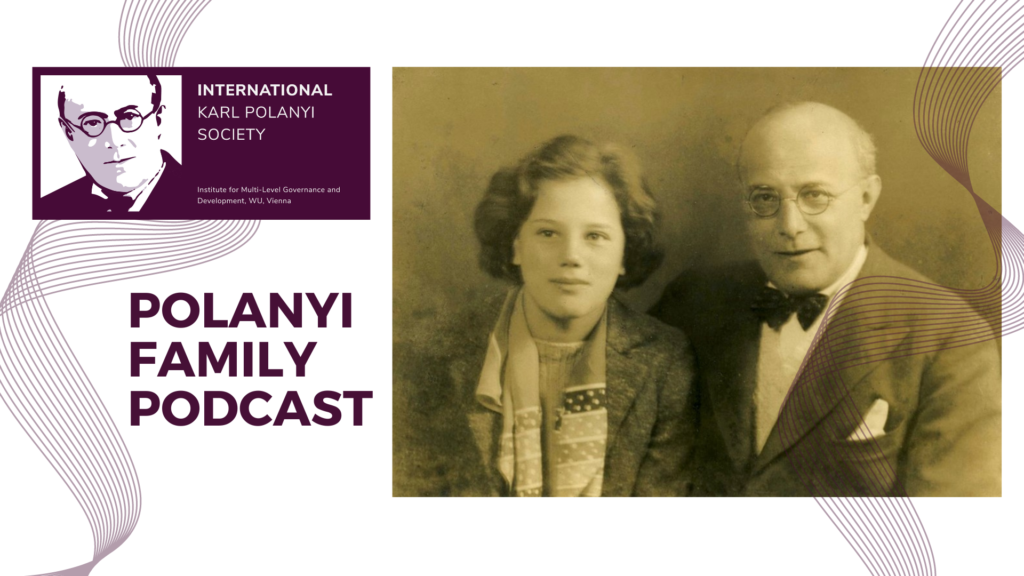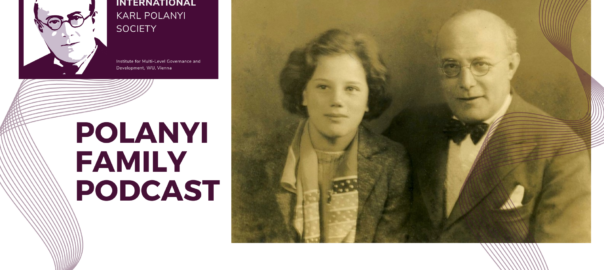

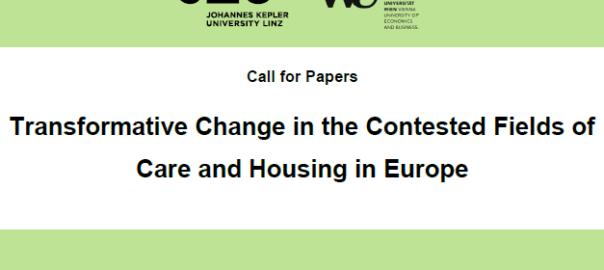
CONFERENCE & CALL FOR PAPERS
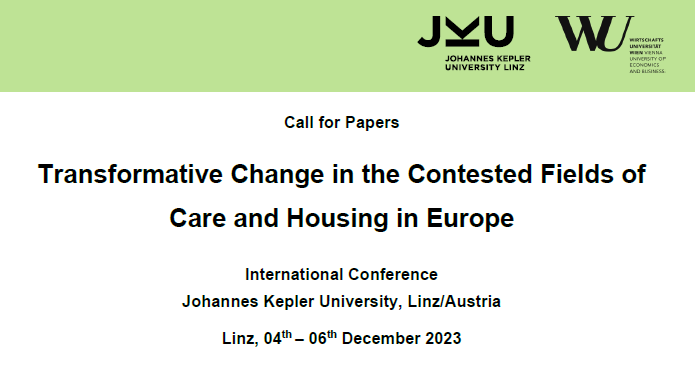
CALL FOR PAPERS
Care and housing are foundational for human well-being. Both deal with organising and
sustaining livelihoods: while care as a human activity reacts to the ever-given contingency
of life, housing arranges a place for undertaking everyday need-satisfying activities. In both
fields, crises have exacerbated over the last decades, manifesting in care gaps, labour
and care migration, and precarious working conditions of care workers, respectively in
overburdening costs due to the transformation of homes into assets, leading to
gentrification and segregation. Despite being seldomly investigated together, care and
housing as well as their related crises are co-constitutive.
From the 1990s onwards, two simultaneous tendencies can be observed in European care
regimes and housing systems. On the one hand, neoliberal reforms have aimed at
privatisation, commodification, marketisation, and financialisaton. This has rearranged
welfare states, promoting variegated forms of capitalism. Allegedly singular events like the
global financial crisis, subsequent austerity measures, the Covid-19 pandemic, and the
current cost of living crisis have furthermore deepened structural problems of access and
affordability. This has led to increasing socioeconomic and spatial polarisations as well as
social inequalities in the relations of gender, race, and class. On the other hand, these
developments have transformed the provision of care and housing into a contested terrain
leading to labour disputes and struggles, such as care protests, or initiatives for
expropriating institutional investors. The wide range of community-based or infrastructural
projects has to be seen against the backdrop of the increasing search for alternative care
and housing provision. On top of that, rapid technological developments and climate
change further accelerate the reorganisation of care and housing arrangements and
practices built up by all parties involved in both contested fields.
Given these multiple transformations, the conference “Transformative Change in the Contested Fields of Care and Housing in Europe” seeks to analyse the contemporary developments in care regimes and housing systems and respective configurations of care
and housing.
Of particular interest is research which reflects on the connections of the two
fields. We aim at a broad interdisciplinary dialogue of social sciences to grasp different
perspectives of these multidimensional changes. Thus, we welcome scholars from
disciplines like sociology, socioeconomics, political economy, political science, geography,
philosophy, history, and interdisciplinary strands like gender and intersectionality studies
to contribute to the common investigation and discussion of the contested and entangled
fields of care and housing in Europe. We welcome both, theoretical approaches, and
empirical research, to analyse and reflect on the contemporary transformations, its causes,
and effects as well as commonalities and differences between fields and countries,
between city and countryside.
The conference aims at addressing the following questions with the explicit intention of
using multiple theoretical perspectives and to grasp the broad diversity of European
countries, regions, and cities:
• What are the driving forces of transformative change in the fields of care and housing?
Which social, economic, political, cultural, and technological dynamics and which
norms and values, demands and claims shape modes of care and housing provision?
• How do markets, the state, the family and the community reorganise care and
housing? What are other key actors in different institutional contexts at multiple levels
(from local to global)?
• Which disputes take place in “doing care” and “doing housing”? How do these relate
to multi-scalar struggles over working conditions, wages, and affordability as well as
the design of liveable neighbourhoods?
• What are relevant economic and political orders, welfare regimes, and social policies
and how do they structure different forms of care and housing provision?
• How do new modes, forms, and arrangements of care and housing provision promote
a different understanding of life and work? How are they interrelated with the
reorganisation of paid, unpaid and volunteer, professional and lay work and new forms
of work organisation?
• How are modes of care and housing provision and the transformative change in the
configuration of care and housing affected by the development and implementation of
digital technologies? How does technological change influence the meaning and
organisation of care and housing?
• How are modes of care and housing provision and the transformative change in the
configuration of care and housing affected by the climate crisis? How does it contribute
to changes in the governance of communities, neighbourhoods, and the living
environment to reconfigure care and housing provision?
• How do social, economic, gendered, and ethnic inequalities and socio-spatial
polarisations shape the organisation of care and housing? How do they affect
transformative change, social and ecological demands, and digitalisation of care and
housing arrangements?
• What are the commonalities and differences in the provision of care and housing?
How can theoretical and methodological approaches contribute to a better
understanding of care and housing in Europe? What are the potentials and limitations
of approaches that integrate both fields?
Abstract submission:
We invite researchers to submit an abstract (250-300 words and full affiliation of the
author/s) by 31st July 2023 and will inform you about the acceptance of your paper by 31st
August 2023. Please send your submissions to contestedcareandhousing@jku.at. The
conference language is English. Travel and accommodation costs will not be covered by
the organisers; there are no conference fees.
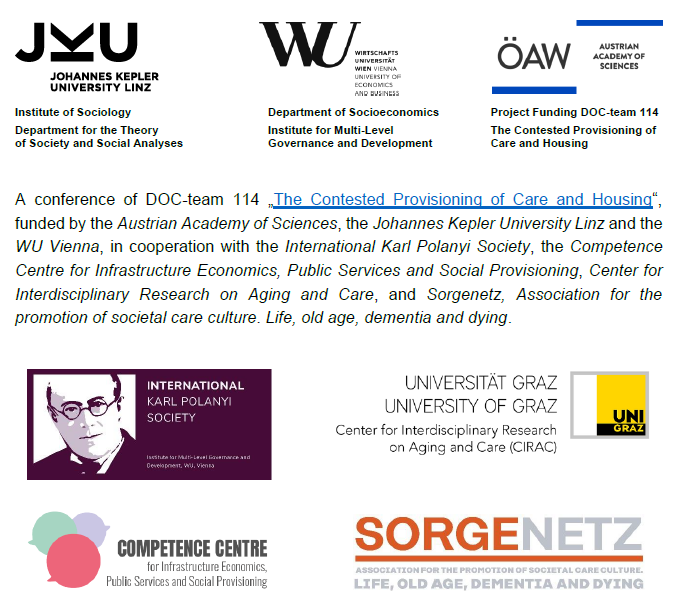

“Transformative Change in the Contested Fields of Care and Housing in Europe “
We invite you to participate in the conference, which aims at addressing diverse questions with the explicit intention of using multiple theoretical perspectives and to grasp the broad diversity of European
countries, regions, and cities.
31st July, 2023
Submission Deadline
We invite researchers to submit an abstract (250-300 words and full affiliation of the
author/s) by 31st July 2023 and will inform you about the acceptance of your paper by 31st
August 2023. Please send your submissions to contestedcareandhousing@jku.at. The
conference language is English.
Organised by:
Johannes Kepler University Linz,
WU Vienna,
Austrian Academy of Sciences – ÖAW,
University of Graz,
Competence Centre for Infrastructure Economics, Public Servies and Social Provisioning,
Sorgenetz
Organizers and chairs:
Brigitte Aulenbacher
Andreas Novy
Valentin Fröhlich
Benjamin Baumgartner
Florian Pimminger
Hans Volmary
Administration:
Tobias Eder

Contested Marketisation and Communitisation of Care
Contested Marketisation and Communitisation of Care: Migrant live-in care and Caring Communities in Austria
15th of May, 2023

Florian Pimminger
As in many other European countries, the Austrian society is faced with challenges to organise care services for the growing share of senior people. Two tendencies can be identified to address occurring care gaps in the face of demographic transition: on the one hand, market-mediated provision of care and, on the other hand, the potential for care within communities.
In this article, we shed light on the ongoing marketisation of care work with respect to agency-mediated live-in care, conducted mostly by women from Eastern European countries, living and working as caregivers in Austrian households. Moreover, we focus on multi-faceted forms of communitisation in terms of caring communities, local and neighbourhood initiatives and alternative living arrangements for seniors. These developments, among others, can be analysed as controversial and ambivalent societal reactions to the ongoing “crisis of care” (Maier 2022).
Persistency and Fragility: Care Gaps within the Welfare State
Within the Austrian society, the ideal of living at home in old age is culturally and institutionally firmly anchored (cf. Bauer et al. 2014; Prieler 2021). At the same time, Austria’s welfare state shows different scopes of responsibility: “while the long-term care allowance [“Pflegegeld”] is a national responsibility, services are the responsibility of the provinces” (Österle 2021: 7). This means a primarily addressing of families, with state investments directed towards this. Idealising family care is supported by a variety of political measures. Despite public expansions of inpatient, day-care and mobile services, senior care provision “has traditionally been embedded in both family structures and state institutions securing and enabling those structures” (Weicht 2019: 264).
Despite equalisations, inequalities are shaping the feminised working environment of the care sector. Regarding the shift from a male-breadwinner to a so-called adult worker model, Austria is described as a “gendered model of explicit familialism, which reiterates the male breadwinner and female caregiver ideology” (Mairhuber/Sardadvar 2018: 66; Leitner 2014). Not only in the area of family-based provision, but also in the service sector administered by provincial authorities and the third sector (non-profit welfare agencies), working pressure is increasing and gaps are emerging.
Live-in-Care and Caring Communities as Reactions to Care Crisis
Especially since the legalisation of the self-employment model in 2007, agency-mediated live-in care has become an important pillar of care provisioning for seniors (Aulenbacher et al 2021; Österle 2021). On a European market for care work, agencies sell care (as a “fictitious commodity” in a Polanyian sense – cf. Aulenbacher et al. 2020) to more affluent societies, responding to growing demands.
Live-in care is organised as a market-oriented self-employment model, in which care in private homes of the cared-for is operated as a business, and caregivers as well as agencies are represented by the Chamber of Commerce. What is known in everyday language as “24-hour care” points discursively to the permanent availability of the caregivers. Mediated by currently around 1000 agencies of different size, these for- and non-profit organisations have become powerful actors, as they have a decisive influence on the conditions under which it is provided (Aulenbacher et al. 2021). This has resulted in a dynamically developing care market – transnationally and within the welfare state.
Live-in care workers are often referred to as virtual or imagined family members. Accordingly, relatives and family caregivers often associate care tasks with qualities that are typically assigned to families, like intimacy, love, or housekeeping (Weicht 2019). Thus, migrant caregivers, who live in the shared household, are often seen as substitute for family care. This relates to gender norms and family logics that are ingrained in the Austrian care regime (Aulenbacher et al. 2018). The arrangement is further consolidated through quality seals and additional financial subsidies (Aulenbacher et al. 2021; Österle 2021). Mostly large – for-profit and non-profit – agencies hold a special quality seal, trying to stand out against other agencies. In this way, agencies are seeking to make live-in care more competitive and sustainable (Aulenbacher et al. 2020).
However, movements have become apparent. Providers at regional levels and welfare agencies are trying find new ways to improve the arrangement through higher degrees of transparency, slightly enhanced working conditions, more integrated cooperation with mobile and medical services. Although the sector is growing steadily, the condition of the arrangement remains controversial. Critics focus on precarious working and living conditions, and coalitions of caregivers are formed (Aulenbacher et al. 2022; Maier 2022). These initiatives and NGOs are revealing problematic conditions of working in a foreign household and the challenges of pendulum migration.
In addition to tendencies towards marketisation, various community initiatives are gaining relevance, aiming at understanding care for senior citizens as a task to be dealt with collaboratively and at establishing more reciprocity-oriented care networks (Dressel et al. 2022; Wegleitner &Schuchter 2018; Wegleitner & Schuchter 2021).
What unites these diverse forms of communitisation, in all their heterogeneity, is to strengthen new cultures of care, cooperation and community-building. They often strive to bring together residents of a municipality or region with local family caregivers in order to raise awareness about issues of vulnerability, dying, death and loss, and how care work is currently allocated. As one project report puts it, it is a matter of “perceiving, organising and maintaining a multifaceted fabric of (caring) relationships” (Wegleitner & Schuchter 2021: 10).
Caring community projects are set up and supported by government institutions, in cooperation with local or confessional services and civil society actors. Currently, projects are promoted using the motto “Towards Good Neighbourhoods” or “Caring Communities for Future”, focusing on interaction between civil society initiatives and professionals. These (pilot) projects aim to improve the quality of life and health of citizens and reduce the burden on the health and care system.
Community-based forms of care are still a niche phenomenon in Austria, which is gaining in importance. Financial incentives, support programs, the variety of projects as well as political and scientific debates on community-based forms of care indicate their increasing relevance. As societal reactions to insufficient public provision and to “fragmentation, bureaucratisation and commodification of care” (Wegleitner & Schuchter 2019: 5), caring communities can be interpreted as Polanyian counter-movements. At the same time, their organisation and embedding in the welfare state are controversial. The reorganisation of logics of (and through) communitisation may result in altered forms of division of labour. Gender inequalities can potentially be challenged but also de-thematised (Aulenbacher et al. 2018; Reimer & Riegraf 2016; Wegleitner & Schuchter 2018). In this context, questions arise about the extent to which more reciprocal community initiatives can contribute to new family, generational and gender arrangements. Or more generally: whether it could lead to questioning of traditional orientations that have shaped the provision of care so far.
References
Aulenbacher, Brigitte / Décieux, Fabienne / Riegraf, Birgit (2018): Capitalism goes care. Elder and child care between market, state, profession, and family and questions of justice and inequality. In: Equality, Diversity and Inclusion: An International Journal 37/4, 347–360.
Aulenbacher, Brigitte / Leiblfinger, Michael / Prieler, Veronika (2020): The Promise of Decent Care and the Problem of Poor Working Conditions. Double Movements Around Live-In Care In Austria. In: sozialpolitik.ch 2, 1-21.
Aulenbacher, Brigitte / Lutz, Helma / Schwiter, Karin (Hg.) (2021): Gute Sorge ohne gute Arbeit? Live-in-Care in Deutschland, Österreich und der Schweiz. Beltz Juventa.
Aulenbacher, Brigitte / Lutz, Helma / Schwiter, Karin (2022): “Live-in-Care” in Deutschland, Österreich und der Schweiz. Interview mit Prof.in Dr. Brigitte Aulenbacher, Universität Linz, Prof.in Dr. Helma Lutz, Universität Frankfurt und Prof.in Dr. Karin Schwiter, Universität Zürich. In: berufsbildung 76/4.
Bauer, Gudrun / Haidinger, Bettina / Österle, August (2014): Three Domains of Migrant Domestic Care Work: The Interplay of Care, Employment and Migration Policies in Austria. In: Bridget Anderson / Isabel Shutes (Hg.), Migration and care labour. Theory, policy and politics. Macmillan, 67–86.
Leitner, Sigrid (2014): Varieties of Familialism: Developing Care Policies in Conservative Welfare States. In: Philipp Sandermann (Hg.), The End of Welfare as We Know It? Verlag Barbara Budrich, 37–51.
Maier, Carina (2022): Nicht ohne ihre Kämpfe! Arbeits- und Lebensbedingungen der 24-Stunden- Betreuer*innen und vieles zu lernen für feministische Theorie. In: Momentum Quarterly – Zeitschrift für sozialen Fortschritt 11/1, 94–107.
Österle, August (2021): The Long-Term Care System in Austria. Social Policy Country Brief 12. https://media.suub.uni-bremen.de/bitstream/elib/5036/4/2021_Country%20Brief_LTC_Austria.pdf
Prieler, Veronika (2021): ‘The Good Live-in Care Worker’: Subject Formation and Ethnicisation in Austrian Live-in Care. In: Sociológia 53/5, 483–501.
Reimer, Romy / Riegraf, Birgit (2016): Geschlechtergerechte Care-Arrangements? Zur Neuverteilung von Pflegeaufgaben in Wohn-Pflege-Gemeinschaften. Beltz Juventa.
Sardadvar, Karin / Mairhuber, Ingrid (2018): Employed family carers in Austria. The interplays of paid and unpaid work—beyond “reconciliation” In: Österreichische Zeitschrift für Soziologie 43, 61–72.
Wegleitner, Klaus / Schuchter, Patrick (2018): Caring communities as collective learning process: findings and lessons learned from a participatory research project in Austria. In: Annals of palliative medicine 7, 84–98.
Wegleitner, Klaus / Schuchter, Patrick (2019): Sorgebeziehungen fördern: Caring Communities als sozial-ethische Prozesse des Voneinander-Lernens. In: Dialog Ethik 140, 4–7.
Wegleitner, Klaus / Schuchter, Patrick (2021): Handbuch Caring Communities – Sorgenetze stärken – Solidarität leben. Eigenverlag Rotes Kreuz.
Weicht, Bernhard (2019): The commodification of informal care: joining and resisting marketization processes. In: Roland Atzmüller / Brigitte Aulenbacher / Ulrich Brand / Fabienne Décieux / Karin Fischer / Birgit Sauer (Hg.), Capitalism in Transformation: Movements and Countermovements in the 21st Century. Cheltenham, UK: Edward Elgar Publishing, 261–274.
Florian Pimminger
Ph.D. student in Social Sciences, Economics and Business. Fellow of the Austrian Academy of Sciences (ÖAW) at the Institute of Sociology (Department for the Theory of Society and Social Analyses) of the Johannes Kepler University Linz. As part of the ÖAW DOC-team 114 “The Contested Provisioning of Care and Housing” (https://www.contestedcareandhousing.com) he is currently conducting a project on the societal organisation of care between marketisation and communitisation in the care regimes of Austria, Hungary, and the Netherlands. The blog post is the result of close cooperation with Brigitte Aulenbacher and Valentin Fröhlich within this project. Contact details: florian.pimminger@jku.at
Read the other essays on the Contested Provisioning of Care and Housing here:
